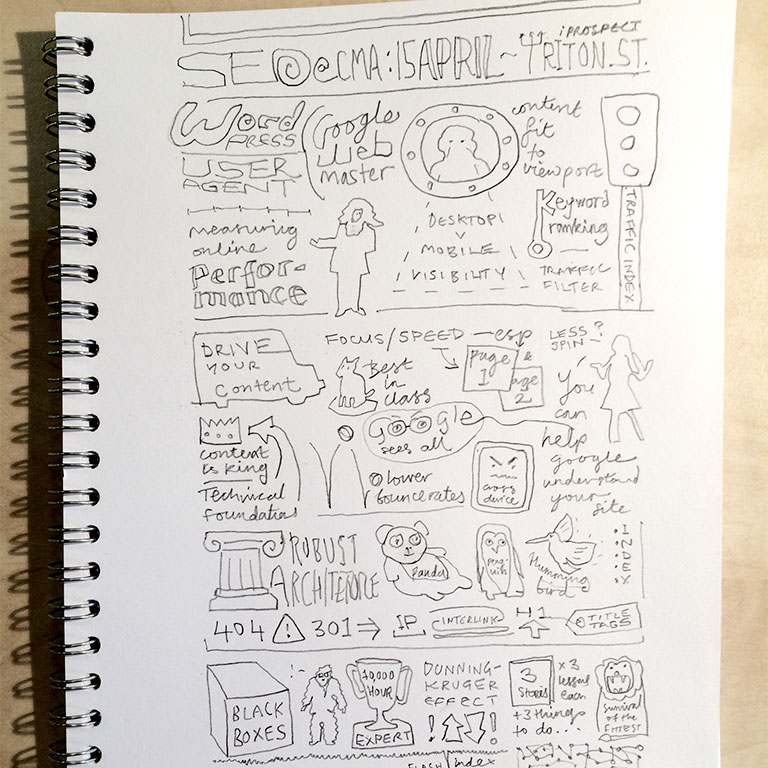5 things I learned about SEO
Published Apr 20, 2015 – By Molly Bennett, Head of Editorial

This month’s CMA Digital Breakfast was all about search engine optimisation, or as it’s usually known, SEO. Just between you and me, most of it went right over my editorial head, delving as it did into terms like ‘301 redirect’, ‘user agent’ and ‘the Dunning-Kruger effect’ (my new favourite – Google it). Luckily, we have a cracking digital team to deal with things like that.
I did take a few things away, however – and any digital knowledge is useful knowledge, given how many of Wardour’s projects are now either partly or wholly online.
Here’s what I learned:
Google is the only game in town.
From what the speakers said, it sounds like they spend most of their days frantically rewriting code and honing content to keep up with Google’s frequent algorithm updates. But it’s a worthwhile endeavour: in many users’ minds, what isn’t easily Googlable might as well not exist.
Headlines and standfirsts need to be reasonably literal.
While this wasn’t a new concept to me, it was a useful reminder that while more, shall we say, poetic headlines, standfirsts and opening paras work well in print, digital is different. You don’t want to stuff every relevant term into a 10-word headline, but it and other copy elements need to be descriptive and on topic so Google’s algorithm can find your article easily.
Meta tags – the bits of copy that appear in search results – are important.
They should be relevant and descriptive, but also interesting or unusual enough to entice browsers to click on your article even if it’s not top of the list.
Mobile matters.
From this Tuesday, 21 April, Google’s algorithm will take mobile compatibility into consideration. This means that if your site isn’t responsive, or at least optimised for mobile devices, it will appear lower down the search rankings. Consider yourself warned…
Even Google’s brainiac founders Sergey Brin and Larry Page don’t know how their own algorithm works anymore.
That’s because it’s more or less a living system that learns and evolves. Hence why developers are constantly scrambling to monitor and improve their sites – and the content on those sites.
Bonus fact: If you want a good explanation of chaos theory, look no further than Jurassic Park (the book).
Stay ahead of the curve
Sign up to our emails

